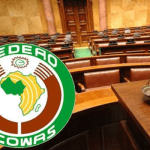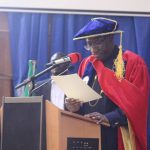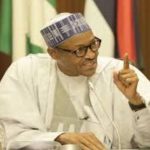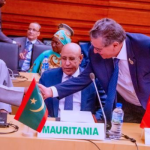The Sahel region in West Africa has been plagued by recurring military coups and political instability, which have posed significant challenges to regional development and democratic governance. In response to this alarming trend, the Economic Community of West African States (ECOWAS) has emerged as a key actor in the battle against military coups in the Sahel. In this article, Wasiu Salami, TVC News Senior Executive, Digital Content and Social Media explores ECOWAS’s role in addressing this pressing issue and highlights its efforts to promote peace, stability, and democracy in the region.
Understanding the Sahel’s Military Coup Challenge
The Sahel, a semi-arid region stretching across multiple West African countries, has experienced several military coups in recent years. These coups often result from political grievances, weak governance, corruption, and the lack of economic opportunities. Coups disrupt democratic transitions, undermine human rights, and exacerbate existing security challenges in the region, such as terrorism, insurgency, and organized crime.
ECOWAS: A Regional Peacemaker
ECOWAS, established in 1975, is a regional economic bloc consisting of 15 member states in West Africa. Its primary objectives include promoting economic integration, development, and regional cooperation. Over the years, ECOWAS has increasingly recognized the need to address political instability and the threat posed by military coups in the region.
- Mediation and Conflict Resolution: ECOWAS has been actively involved in mediating conflicts and disputes among its member states. The regional body has facilitated dialogues and negotiations to resolve political crises, de-escalate tensions, and prevent the outbreak of armed conflicts.
- Peacekeeping Operations: ECOWAS has deployed peacekeeping forces to stabilize politically volatile countries in the Sahel. These peacekeeping missions have sought to restore peace, protect civilians, and create an environment conducive to peaceful and democratic transitions.
- Sanctions and Diplomatic Pressure: In response to military coups, ECOWAS has employed targeted sanctions and diplomatic pressure against coup leaders and their supporters. Economic and political isolation has been used as a tool to dissuade military takeovers and encourage respect for democratic principles.
- Defense of Democracy Protocol: ECOWAS adopted the “Protocol on Democracy and Good Governance” in 2001, which sets out guidelines for preventing and responding to unconstitutional changes of government within member states. The protocol emphasizes the promotion of democratic principles, adherence to the rule of law, and respect for human rights.
- Regional Cooperation: ECOWAS encourages closer cooperation among its member states to tackle the root causes of political instability. This includes addressing issues like poverty, unemployment, and social inequality, which are often exploited by coup plotters to gain support.
Challenges and the Way Forward
Despite ECOWAS’s efforts, the battle against military coups in the Sahel remains a complex and ongoing struggle. Several challenges hinder effective responses:
- Limited Regional Capacity: ECOWAS faces resource constraints and logistical challenges in deploying peacekeeping missions and monitoring political developments in the vast Sahel region.
- Interconnected Security Threats: The Sahel’s security challenges are multifaceted, with military coups often intertwining with terrorism and other forms of violence. Addressing these interconnected threats requires a comprehensive approach.
- Internal Political Divisions: ECOWAS member states vary in their political orientations and capacities to handle crises. Internal divisions among member states can hinder collective action and consensus on regional responses.
To strengthen the battle against military coups in the Sahel, ECOWAS must:
- Strengthen Institutional Capacity: ECOWAS should enhance its early warning mechanisms, intelligence gathering, and rapid response capabilities to address emerging threats effectively.
- Promote Regional Ownership: Encouraging greater ownership of regional security issues by Sahelian countries can foster more sustainable and locally-driven solutions.
- Engage Civil Society: ECOWAS should actively involve civil society organizations in its efforts to promote democracy and good governance. Civil society can act as watchdogs, advocate for democratic values, and foster transparency and accountability.
Conclusion
The Sahel’s struggle against military coups poses a significant threat to peace, stability, and democratic progress in the region. ECOWAS has emerged as a critical regional actor, working tirelessly to address these challenges through mediation, peacekeeping, and diplomatic pressure. However, the battle against military coups remains complex and multi-faceted, requiring concerted efforts from all stakeholders, including ECOWAS member states, regional partners, and international organizations. With a strong commitment to democracy and regional cooperation, ECOWAS can continue to play a pivotal role in advancing peace and stability in the Sahel.














